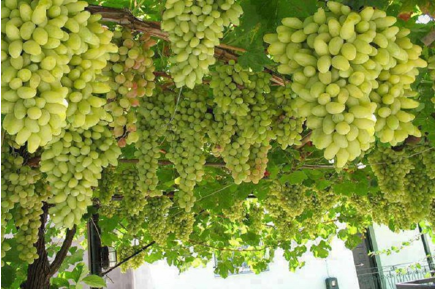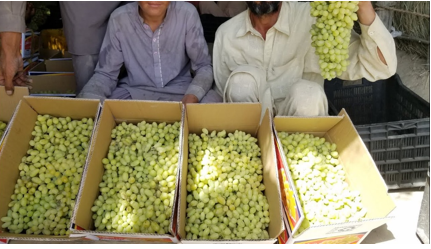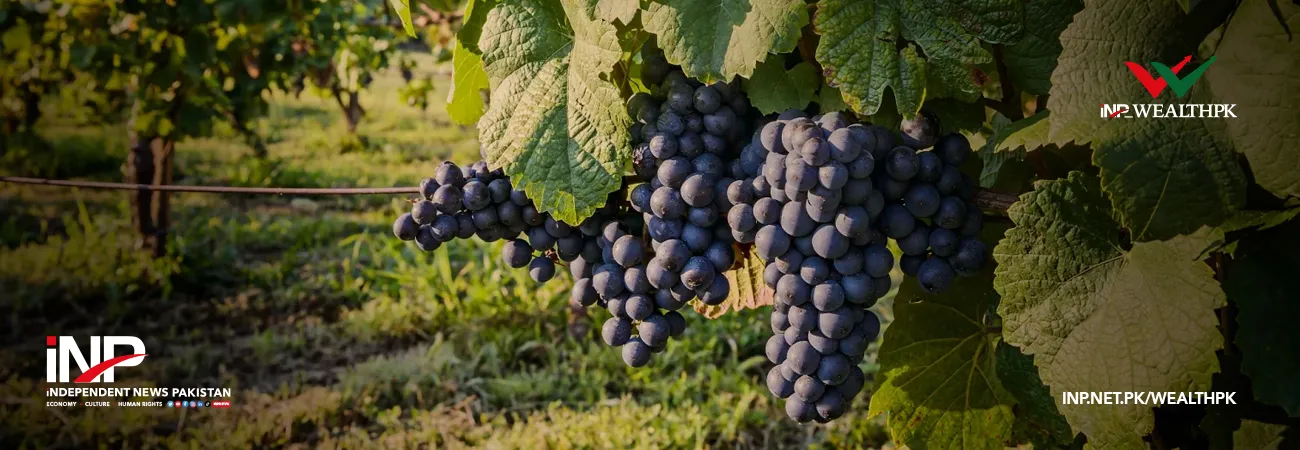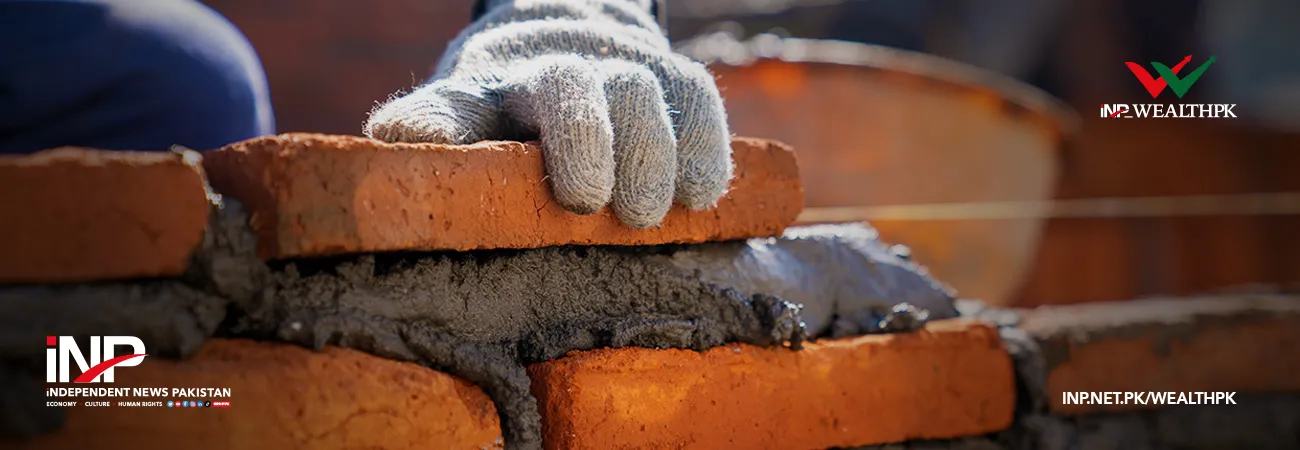آئی این پی ویلتھ پی کے
Ahmed Khan Malik
Balochistan’s growers and experts demand incentives from the government in the upcoming Budget 2025-26 to establish grape processing facilities, which they believe is a critical step toward adding value to grape production in the province.

Balochistan is home to a rich variety of agricultural products. Among these, grapes hold a special place due to the province's suitable climate and fertile soil. With major grape-producing districts such as Pishin, Kalat, Mastung, and Quetta, Balochistan contributes a significant share to the national grape production. However, despite this potential, the province lacks a proper infrastructure to process grapes, resulting in post-harvest losses and missed economic opportunities.

“Currently, farmers primarily sell fresh grapes in the local markets or to middlemen, often at low prices,” Mumtaz Jogezai, Secretary of the Balochistan Growers Forum, told WealthPK. He pointed out that owing to limited cold storage, inadequate transport facilities, and poor market access, a significant portion of the harvest perishes before reaching consumers.
Furthermore, the lack of of value-added products like raisins, grape juice, vinegar, and jams means the full economic potential of grape production remains untapped. By investing in grape processing units, these challenges can be addressed effectively, he added. He said value addition through grape processing offers multiple benefits.
First, it extends the shelf life of grapes, reducing losses due to spoilage. Products like raisins and juices have a longer market life and can be transported to distant regions or exported. This diversification of products not only increases profitability for farmers but also creates employment opportunities in rural areas. From workers in processing plants to packaging, logistics, and marketing, an entire value chain can be developed around grape processing.
Moreover, processed grape products have a steady demand, both locally and internationally. For instance, raisins are used in baking and snacking and are popular in Middle Eastern and Western markets. “With proper branding and quality control, Balochistan can become a key player in the export of grape-based products. This shift from raw to processed goods can significantly improve the income of farmers and boost the regional economy,” he said.
Horticulture expert Shahid Jatak said government support is crucial for providing incentives, training, and basic infrastructure like electricity and water supply. Establishing agro-industrial zones specifically for fruit processing in grape-producing districts can encourage investment. Additionally, technical training for farmers and workers on harvesting, grading, and processing methods can ensure quality and consistency in production, he said.
He said private investors and agri-businesses should also be encouraged through tax benefits, subsidies, and partnerships. “Investment in modern processing technology will ensure competitive products that meet international standards. Furthermore, collaboration with universities and research institutions can help develop innovative techniques tailored to local conditions,” he said.
Shahid said Balochistan’s grape industry has immense potential waiting to be unlocked through strategic investments in grape processing facilities. By shifting from traditional, low-profit models to value-added production, the province can not only boost its economy but also uplift the livelihoods of thousands of farmers and workers, he added.
Credit: INP-WealthPk











